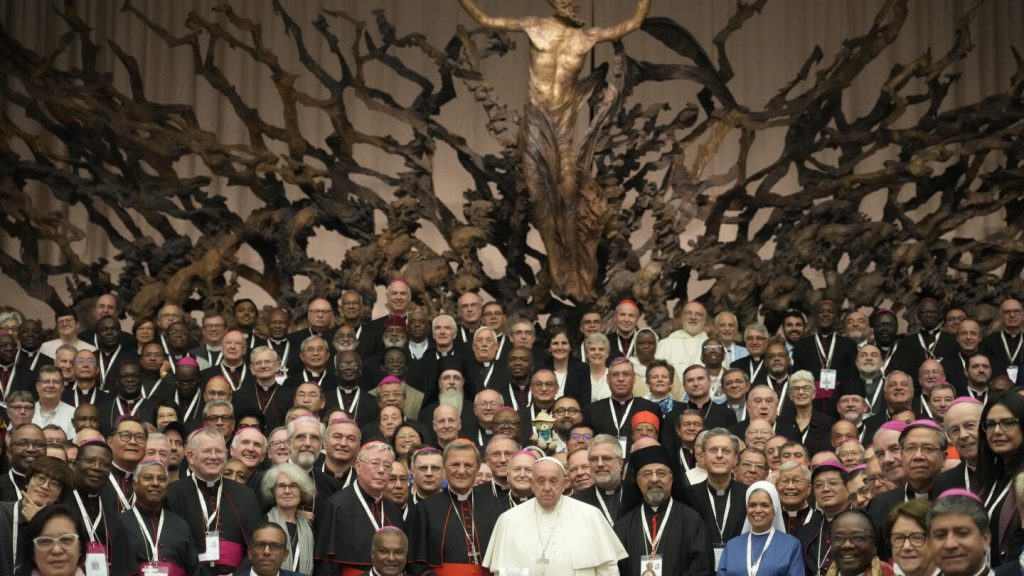In a significant move, Pope Francis closed the yearslong process to reform the Catholic Church on Saturday with recommendations that did not give women the equity many had hoped for. The recommendations called for women to be allowed all opportunities that Church law already provides, but stopped short of permitting women to be ordained as deacons. The purpose of the synod was to provide specific proposals on reform to the pope, but it remains unclear what authority or impact the final recommendations will have. The pope stated that he would not issue a teaching document from the recommendations, emphasizing the importance of being witnesses to peace and living with differences.
Deacons, who perform many functions similar to priests but cannot celebrate Mass, have been at the center of the debate surrounding women’s roles in the Church. Advocates argue that allowing women to be deacons would help offset the shortage of priests, while opponents fear it could lead to eventually ordaining women to the all-male priesthood. Earlier in the week, Cardinal Fernandez stated that the moment was not ripe for allowing the ordination of women as deacons, without defining what would determine the “ripeness” for a greater role for women in the Church.
The multi-year synod process had raised hopes for change, especially among women who have long felt marginalized in the Church. Women are barred from the highest ministerial positions in the Church, despite doing the majority of work running Catholic institutions and passing on the faith to future generations. The final document from the synod highlighted the need for full implementation of opportunities already provided for in Canon Law regarding the role of women, without making a clear statement on women’s access to diaconal ministry.
Some leading scholars on women deacons expressed disappointment with the outcome of the synod, noting that concrete changes are necessary for women to have a true spiritual calling recognized in the Church. Inclusion of women in the synodal process did not lead to significant progress on their roles in the Church, as the working group guiding discussions on women’s role is being run by the Roman curia, outside the synod. The final document was met with frustration by many women hoping for concrete changes, indicating that the pace of cultural shift within the Church may be too slow for their expectations.
The synod process had previously concluded it was urgent to ensure fuller participation by women in church governance positions, and called for further research on allowing women to be deacons. The debate on women deacons during the synod became a litmus test for how far the Church was willing to address demands for greater equality and representation for women. Pope Francis has reiterated that ordaining women would only “clericalize” them, and has proposed other ways to empower women in the Church without resorting to ordination. The failure to address LGBTQ+ issues in the final documents has led to disappointment among gay rights activists, who are calling for the laity of the Church to advocate louder for reform.


